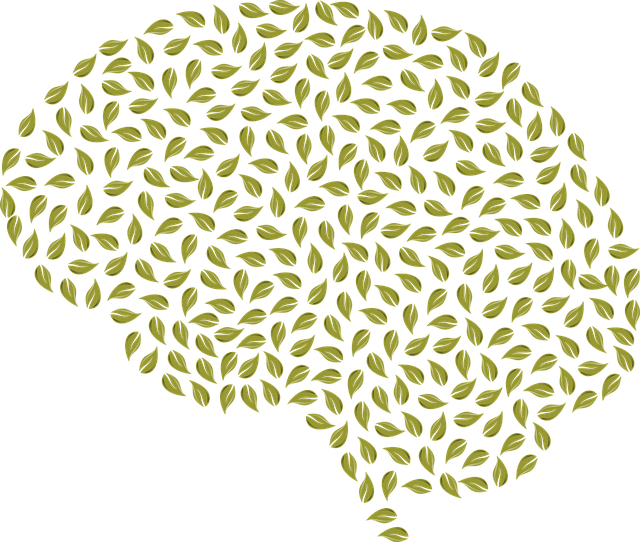Diagnosing and treating mental illness in young children from polyamorous or open relationships demands specialized care due to unique family structures. Early intervention through culturally competent therapy, focusing on emotional development, conflict resolution, and stress management, is vital. Skilled therapists employ strategies like Cognitive-Behavioral Therapy (CBT) and empathy-building techniques to address parental mental health issues while tailoring support to these diverse families. Training in cultural competency ensures accurate diagnoses and effective interventions, fostering healthy development and strengthening family bonds within non-traditional relationships.
Mental illness diagnosis and treatment navigation can be complex, especially for families with young children. This article offers a comprehensive guide to understanding mental health challenges in early childhood, navigating therapy options like polyamorous and open relationships, and implementing effective treatment strategies across diverse family structures. By exploring these key areas, parents and caregivers gain essential tools to support their children’s mental well-being. Whether it’s early intervention or innovative therapeutic approaches, this resource provides valuable insights for a brighter, healthier future.
- Understanding Mental Illness Diagnosis for Young Children: Early Intervention and Support
- Navigating Therapy Options: Polyamorous, Open Relationships, and Their Impact on Family Therapy
- Effective Treatment Strategies for Optimizing Mental Health in Diverse Family Structures
Understanding Mental Illness Diagnosis for Young Children: Early Intervention and Support

Diagnosing mental illness in young children is a delicate process that requires specialized knowledge and skills. Many mental health conditions can be effectively managed with early intervention, making it crucial for parents and caregivers to recognize potential signs and symptoms. Therapy for young children plays a pivotal role in fostering emotional healing processes and promoting healthy development.
In the context of polyamorous and open relationships, understanding mental illness in this demographic is even more critical. A supportive environment, including access to culturally competent healthcare providers, can significantly impact a child’s well-being. Stress management workshops organized by specialized organizations can equip parents with tools to navigate these challenges effectively. Moreover, ensuring that healthcare providers receive adequate training in cultural competency is essential, as it enables them to offer tailored support and accurate diagnoses, addressing the unique needs of diverse families.
Navigating Therapy Options: Polyamorous, Open Relationships, and Their Impact on Family Therapy

Navigating therapy options for young children involves a nuanced approach, especially when considering polyamorous and open relationships. Family therapy has evolved to accommodate diverse family structures, recognizing that non-traditional arrangements can foster healthy emotional development. Therapists skilled in navigating these complexities employ techniques like conflict resolution strategies to manage potential challenges within polyamorous families. By promoting empathy building strategies and emotional regulation skills, therapists support children in understanding their unique familial dynamics.
This inclusive therapy approach ensures children in polyamorous or open relationships receive individualized care that validates their experiences. Through specialized interventions, these families can thrive, with therapists guiding them to develop coping mechanisms for any related emotional or social struggles. By integrating conflict resolution techniques into sessions, therapists empower family members to express their needs and work through issues constructively, ultimately strengthening their bonds.
Effective Treatment Strategies for Optimizing Mental Health in Diverse Family Structures

Mental health treatment strategies should be tailored to fit diverse family structures, recognizing that each unique setting presents its own set of challenges and opportunities for emotional healing. For families with young children, therapy plays a pivotal role in fostering healthy development while addressing parental mental health concerns. Cognitive-behavioral therapy (CBT), for instance, can equip both parents and children with tools to manage stress and emotions effectively.
In non-traditional family arrangements, such as polyamorous or open relationships, individuals may face distinct social and emotional challenges. Integrating cultural competency training within the healthcare provider’s toolkit is essential to ensure these families receive sensitive and effective support. This includes understanding the unique dynamics of these relationships and providing a safe space for all involved to express their needs and work through any emotional regulations issues through therapy. Emphasizing emotional healing processes, whether it’s individual counseling or group therapy sessions, can significantly contribute to improving mental health outcomes within these diverse family contexts.
In navigating mental illness diagnosis and treatment, especially for young children, early intervention and tailored therapy options play pivotal roles. Understanding the complexities of polyamorous and open relationships has led to innovative approaches in family therapy, optimizing mental health outcomes for diverse family structures. By combining effective treatment strategies with a comprehensive grasp of these unique relationships, we can significantly enhance support systems and foster resilience among all involved.














